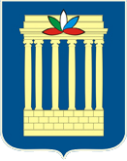ACCESS TO ELSEVIER AND SPRINGER SCIENTIFIC INFORMATION RESOURCES
Access to the largest databases of Elsevier and Springer publishers is now available to teaching and research staff and students of the Belarusian-Russian University.
ScienceDirect full-text database is Elsevier’s leading information platform for scientists, teachers, students, medical professionals and R&D departments of industrial enterprises. It contains 25% of the world’s scientific publications. ScienceDirect multi-disciplinary platform provides comprehensive coverage of literature from all fields of science and gives access to more than 14 million publications from 2,500 scientific journals and more than 39,000 books published by Elsevier, as well as a large number of journals published by prestigious scientific communities.
Scopus is a polythematic abstract database with analytical tools for tracking, analyzing, and visualizing data about scientific publications and their citations. Scopus has over 24,000 titles of scientific publications indexed in engineering, medical science and humanities from 5,000 publishers. The database indexes scientific journals, conference proceedings, serial book publications, as well as trade journals. Today it is the world’s largest resource containing information about the most prestigious peer-reviewed scientific journals. Using the Scopus database, teaching and research staff of the University can find information on topics of interest from the most important scientific publications in the world, track new trends in research, keep their personal profile up-to-date by combining all their publications, determine citation indicators for their publications including the h-index, find potential partners for new research and information for making grant applications and identify the most prestigious journals in their field of research for further collaboration with them. Springer Link platform has more than 3000 Springer magazines published in 1997-2020.
Nature platform offers 90 prestigious natural science journals including the oldest and one of the most prestigious scientific journals — Nature.
The Springer Materials database is the most comprehensive database describing properties and characteristics of materials. It provides information on materials science, physics, physical and inorganic chemistry, mechanical engineering, etc.
The Springer Protocols database is an invaluable resource for modern research laboratories. The largest database of reproducible laboratory protocols (more than 40,000) provides access to reliable and verified data accumulated over the past 30 years.
The zbMath database is the most comprehensive mathematical database covering materials from the late 19th century. The zbMath database contains about 4,000,000 documents from more than 3,000 journals and 170,000 books on mathematics, statistics, computer science, as well as mechanical engineering, physics, natural sciences, etc. The Nano database is a unique resource providing data on more than 200,000 nanomaterials and nanodevices. The Nano database has become available for the first time to all RFBR grantees.
The databases can be accessed using the University’s local network.
For further information, please contact offices 405, 204 (building 3), tel. 74-84-89, lib@bru.by
